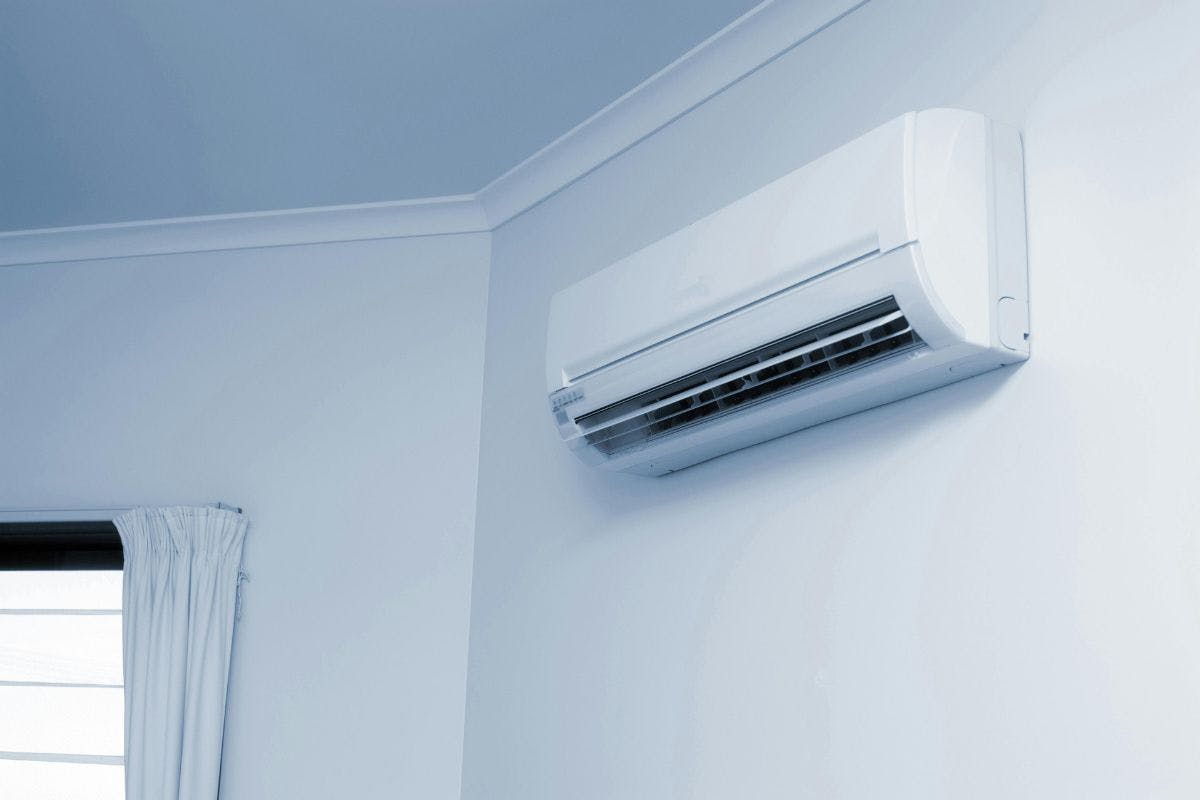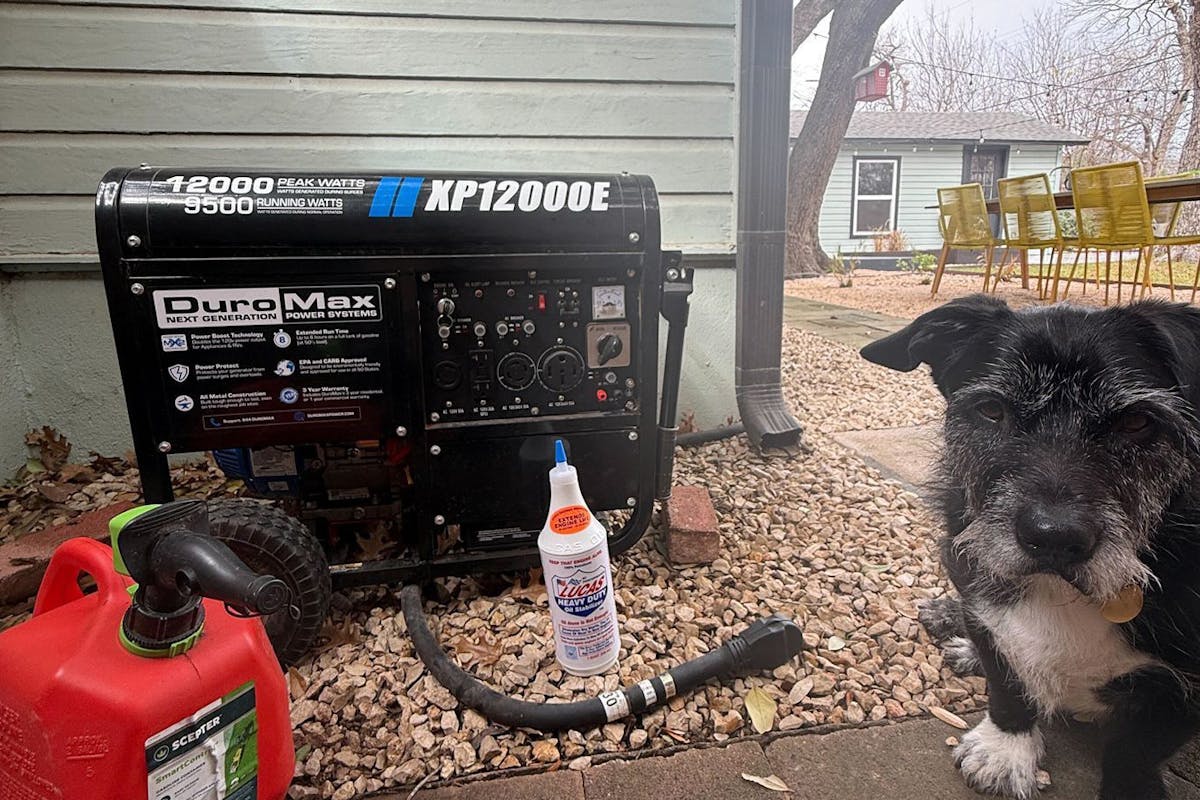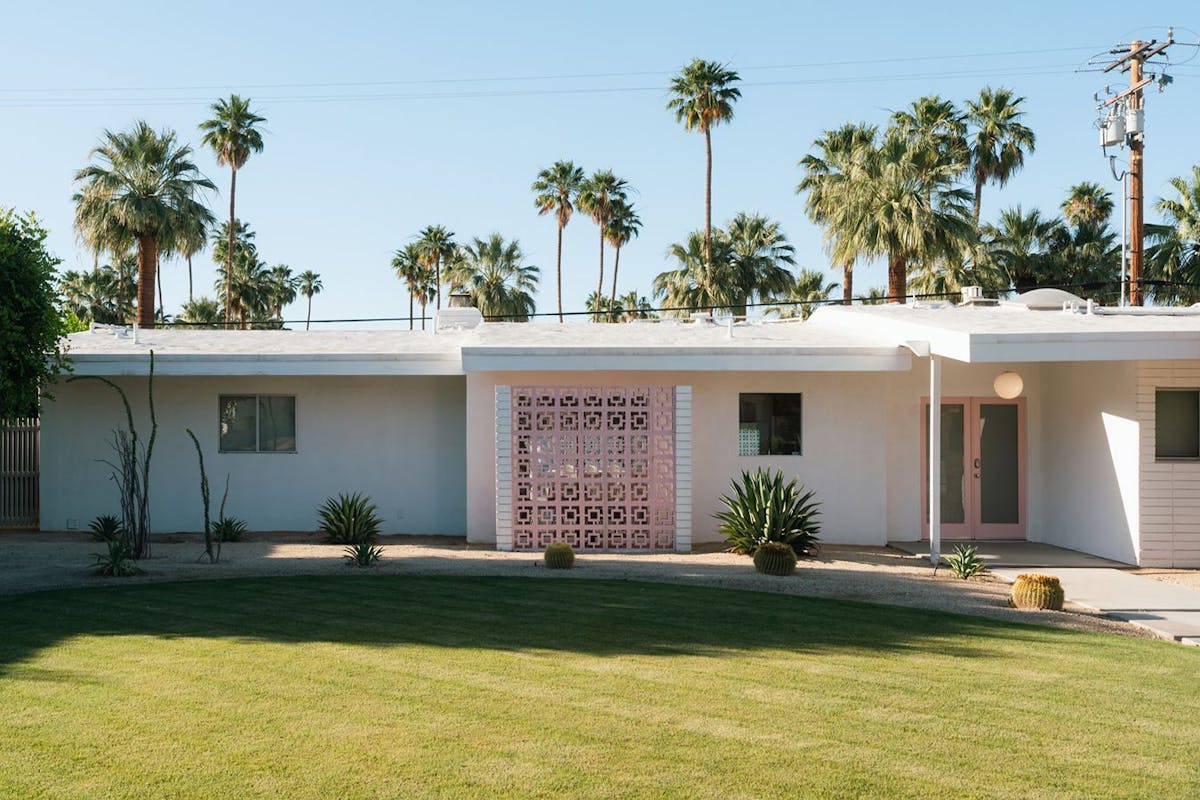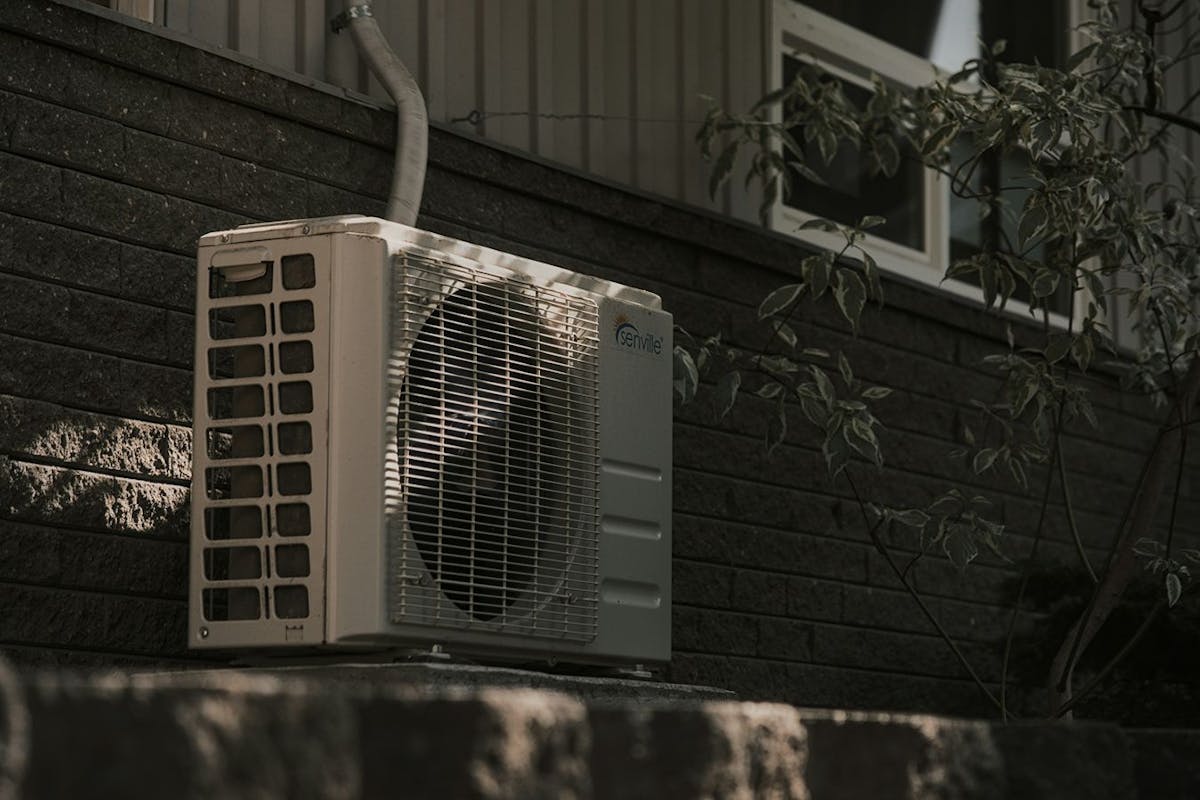What Temperature Should I Set My Air Conditioner In The Summer?
Last edited

Author
Andrew Giermak
Solar and Electrification Writer and Editor

Editor
Ryan Barnett
SVP, Policy & New Market Development

Many homes’ energy bills go up in the summer thanks to running the AC more. With increasing energy costs, this past summer might have been an all-time high, in a bad way, for your home.
Setting the right temperature on your AC’s thermostat is one step you can take to keep your family comfortable and cut into those bills. More money-saving and energy-efficient ideas involve your HVAC system, your home’s windows, and the thermostat itself. In this article, we want to help you use your AC in the best way possible for comfort, your budget, and energy usage.
See how much you can save with home energy changes
What is the Best Thermostat Setting for Summer Air Conditioner Use?
Energy Star recommends the following thermostat temperatures for your air conditioner in the summer:
- 78°F during the day if people are home
- 82°F at night if people are home
- 85°F if no one is home
Are there better summer thermostat settings that aren’t so sweaty?
If you think those suggested air conditioner settings are high, you're not alone. Many people struggle with following them, especially if you’re living somewhere where it’s hot and humid far more than just June, July, and August. Keeping your home at those temperatures could make you feel like you're trapped in a sauna.
While you could manually adjust your thermostat settings throughout the day and night, we have a better idea: Find the settings that keep your family comfortable, while not overworking your air conditioner all summer.
To find the right comfort level for your family, we recommend the following method:
- Start with the ‘normal’ temperature you set the thermostat to in the summer
- Increase the daytime thermostat setting by 1 degree each day, as this gives your body time to adjust to the higher temperatures
- Once you reach a temperature where it’s too warm and is uncomfortable, reduce the temperature by 1 degree and leave it there
- Repeat the exercise for nighttime to find your perfect sleep temperature

Factors That Can Impact Your Home's Thermostat Setting in Summer
The right settings for your home can depend on several factors.
Your air conditioner’s age
If you have an older heating, ventilation, and air conditioning (HVAC) system, it might not keep up with demand if you run it on full blast for hours at a time. Older units can't distribute air as efficiently as newer ones because they typically don't have as much insulation around them and they were built without energy efficiency in mind.
If you have an older unit, consider investing in semiannual inspections to ensure your HVAC system stays in good working order. If it’s working harder, you’ll have higher energy bills.
Your area’s climate
Humidity refers to the amount of water vapor in the air, and it can have a significant impact on how comfortable your home feels. If there is too much moisture in the air, it can cause discomfort and lead to mold growth in your home. At the same time, without enough humidity, your skin may feel dry and itchy as it loses its protective oils.
The best way to maintain a healthy level of humidity is to ensure the performance of your AC unit matches your climate. You should consult with an HVAC specialist in your area to ensure your air conditioner is calibrated properly.
Your home's insulation
Installing sufficient insulation is one of the best ways to reduce heating and cooling costs in your home. Insulating your walls, ceilings, and attic helps keep your home cooler in the summer and warmer in the winter, so your HVAC doesn’t have to work as hard to maintain a temperature.
Since the location of your home can impact the climate you experience, Energy Star has provided recommendations for home insulation R-levels. Talk to your local HVAC technician for additional suggestions, including advice for a company that can install the insulation for you.
Your home’s sunlight levels
The summer temperature you set for your air conditioner can also depend upon the amount of sunlight that enters your home through windows, doors, and skylights. As the sun beats down on the windows and walls of your home, it raises the indoor temperatures.
If there are no trees or other structures between your home and the sun, you may want to find ways to block some of that sunlight during the day, including:
- Adding interior curtains to large windows
- Installing exterior shutters
- Tinting windows and glass doors
- Installing energy efficient windows
See how much you can save with home energy changes
Tips for Helping Your Air Conditioner and Thermostat Settings
The best way to keep your summer energy bills low is to find ways to reduce your total energy consumption. Since it can be hard to use less electricity while also keeping your air conditioner at a comfortable level for your family, we’ve assembled some tips to help your air conditioner perform better.
Check for air leaks
Leaks in your ductwork can cause your HVAC system to work harder than necessary, which quickly leads to wasted energy and large electricity bills. While you could use a DIY duct detector to check for leaks, the easiest way is to hire a licensed HVAC professional to inspect your system for leaks and make any necessary repairs. The cost of that work is often offset by the energy savings you’ll see from increased AC efficiency.
Install ceiling fans
Ceiling fans can make your house feel cooler so you save money by having an alternative source of ventilation and air movement during hot months. Ceiling fans keep air circulating in your home and across your skin, which helps you feel cooler without lowering the thermostat.
Studies show ceiling fans can make your home feel up to 4°F cooler. Just make sure you set the fan to blow air down into the room in summer, because most fans have a separate summer and winter mode.
Fix seals around doors and windows
If there are gaps in the seals around your doors or windows, hot air can enter your home instead of staying outside where it belongs. Correcting these issues is rather simple.
- Place your hand or face near the outer edge of your windows and any doors leading to the outside.
- If you can feel the flow of air in any way, your seals may need maintenance.
- Replace the weatherstripping around any doors and windows.
- Add fresh silicone caulk around the window frames.
Install an efficient programmable thermostat
Programmable and smart thermostats allow you to set an ideal temperature for different times during the day. This means you don't have to remember to manually adjust the settings to reach your preferred temperature. These devices can save up to 10% on heating and cooling bills — but only if you use them correctly.
Before you start adjusting your settings to set your thermostat, you should check the manufacturer's recommendations for programming instructions. This is especially important if you've recently upgraded to a newer smart thermostat with more bells and whistles.
Conduct HVAC maintenance
You can also reduce your energy consumption by simply taking good care of your HVAC system.
- Change the filter every month (or quarterly, depending on the manufacturer’s recommendation).
- Have it inspected by an HVAC professional regularly, especially the hardware, ducts, and registers.
The goal of this maintenance is to ensure everything works properly, and to make adjustments or repairs as needed. This helps reduce wear on components, and improves efficiency by allowing air to flow better through the system. A dirty filter causes your system to work harder and use more energy than necessary.
Get an energy audit
An energy audit is an assessment to evaluate the energy efficiency and wasted energy of a building, including a home. Some parts of a home energy audit are checks you can do. Some might be better with a pro doing the work.
An estimated 55% of energy used in US homes is for heating and cooling. Energy auditors inspect your home's insulation, appliance efficiency, air leakage, and more.
The benefits include improving the efficiency of your home which can reduce your utility costs. At the same time, you’re making your home more comfortable and sustainable.
Summer Air Conditioner Settings
In the summer, experts say the thermostat for your air conditioner should be set to at least 78°F during the day when people are at home. That setting is designed to help people avoid high energy bills in the summer. The lower your thermostat setting, the higher your bill.
However, we also believe the actual AC temperature you use should be a matter of personal comfort. You don't want to be miserable in your own home. When setting your thermostat in the summer, several factors will affect energy consumption, including local climate, how your home is built, and the age of your HVAC system.
Here are several tips you can use to help your AC work properly, lower your energy usage, and keep your energy bill from rising.
- Make sure you have good ventilation in all rooms, and use fans where possible
- Turn off lights when they aren't being used
- Replace the filter once a month (or quarterly at a minimum)
- Find the right setting for your family that everyone enjoys, without running the AC all the time
Once you’ve reduced your AC use as much as possible, the next step to air conditioner savings is to power it with renewable energy from all the summer sunshine that’s warming up your home.
Get started today with our free solar design and savings estimate tool to see how much you could be saving with solar panels.
If solar is a good fit, Palmetto's team of experts can help you through the solar process, step by step.
Frequently Asked Questions
What’s the best setting for a thermostat during the summer?
The Department of Energy recommends keeping our home temperature from 78-82°F. That’s not practical for most of us, most of the time. The best setting will balance comfort for your family and having your AC run efficiently as often as possible. A smart thermostat can make maintaining a comfortable, efficient temperature easy.
What’s the best thermostat setting for winter?
The US Department of Energy recommends setting our thermostats to 68-70°F during the day, and decreasing the temperature overnight.
How can I reduce the amount of energy my air conditioning system uses?
Use ceiling fans and control the sunlight and shade that comes into your home via windows. Change your HVAC’s air filters as recommended, check your home’s insulation, check seals around doors and windows, and get and use a smart thermostat.


